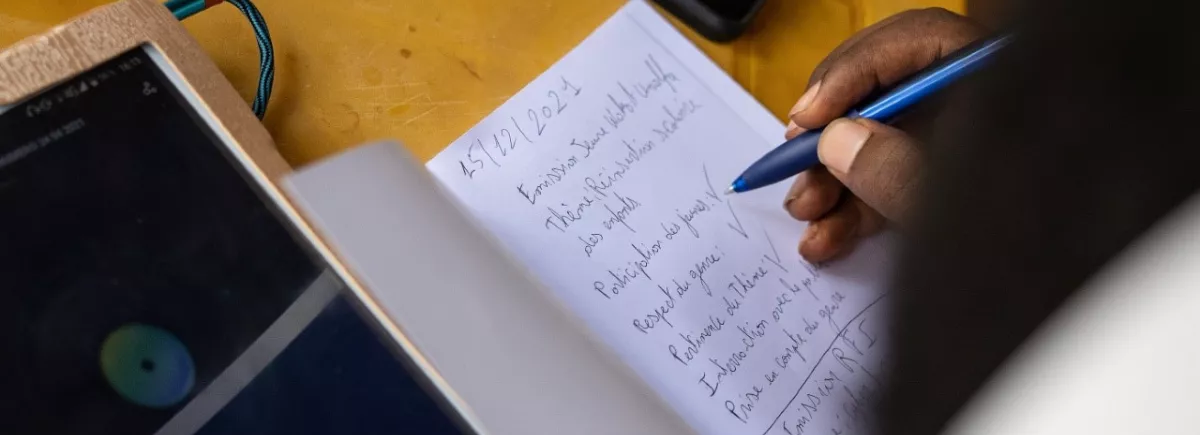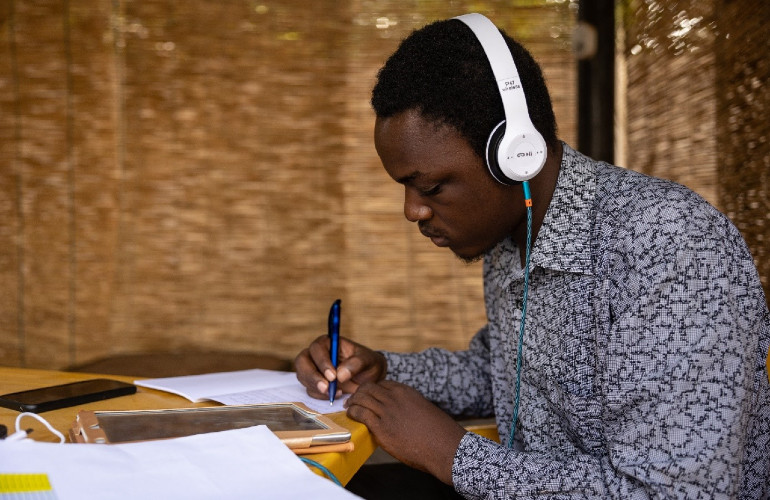
In the Sahel, young “flagbearers” assess programmes devoted to young people
Related project
MediaSahelThere have been 75 young people fully involved in MédiaSahel activities, particularly in the assessment process for programmes that are devoted to them. We look back at the first listening committees organised in December 2021.
These landmark committees were held in three countries—Burkina Faso, Mali and Niger—and each involved 12 or 13 members, identified by language, region and sex. For six months, an initial cohort met over four days to listen and give an individual assessment of around 60 programmes selected at random.
At the end of the six months, this cohort made way for a second group, who proceeded to do the same thing. The aim of the MédiaSahel listening committees is to increase the involvement of young people at every stage of the project, including the monitoring/assessment stage, and to better understand their expectations.
“I had never been involved in the assessment stage before — this was the first time and I was thrilled about it. I was introduced to radio stations and programmes that I wasn’t familiar with, covering a range of different topics. It was really interesting!”
A participant in the Burkina Faso committee

During the first committees of December 2021, 268 programmes were listened to a total of 378 times by 37 young people from three countries, each using a headset and tablet. The programmes, provided by MédiaSahel’s 73 partner radio stations, other production partners such as RFI, RAES and other supported online media, were listened to at least two or three times per person. The assessments were made according to three criteria, as set out by the team: the programme’s consideration of young people, consideration of gender and trust in the media.
An online questionnaire meant that the participants could easily assess the programmes using these three criteria and then consolidate the data.
The assessments and recommendations made by participants were communicated to different media managers so that they could be taken on board to bring the programmes in line with young people’s expectations.
An editorial listening committee, this time made up of media professionals, will soon be set up. The work of this committee will follow on from the young people’s work, with the same goal of providing this demographic with quality content that addresses issues that are important to them.


